 FILM
FILM In Which Her Parents Constituted The Final Straw
 Tuesday, July 29, 2014 at 11:42AM
Tuesday, July 29, 2014 at 11:42AM 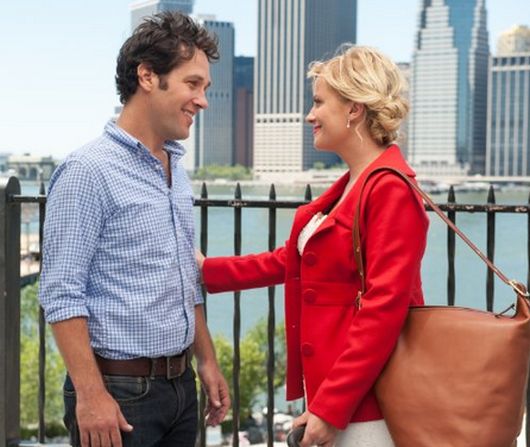
Paying My Dues for the Journey
by ELEANOR MORROW
They Came Together
dir. David Wain
83 minutes
 Joel (Paul Rudd) is an executive at Candy Systems Incorporated, a multi-ventured candy conglomerate. He is in a long-term relationship with a brunette named Tiffany (Cobie Smulders) who struggles to return his affection because of certain depraved incidents in her past.
Joel (Paul Rudd) is an executive at Candy Systems Incorporated, a multi-ventured candy conglomerate. He is in a long-term relationship with a brunette named Tiffany (Cobie Smulders) who struggles to return his affection because of certain depraved incidents in her past.
On the day that Joel plans to propose to Tiffany, he finds her apartment spackled with torn off clothes and accessories on the hardwood floor. He calls out her name and hears sounds in the bedroom. Assuming she is just washing herself noisily in the shower, he attempts an elongated speech to preface his marriage proposal. When he turns around he sees her in the arms of Trevor (Michael Ian Black). His relationship is over.
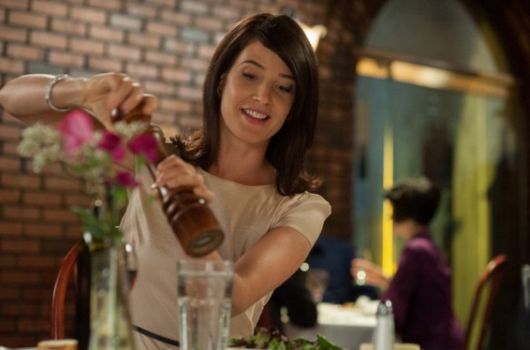
With this inauspicious beginning commences David Wain's supreme masterpiece, They Came Together. Previously known for tackling lighter topics like the innocent thrills of summer camps or couples retreats, They Came Together marks a departure for Wain. The film is riotously funny, but it is also deeply personal.
On the surface, They Came Together presents like a zany parody of You've Got Mail. Joel's new love interest is Molly (Amy Poehler). Watching Molly swish through her delightful homespun candy shop named Upper Sweet Side makes you realize how much the showrunners on Parks and Recreation dressed and made her up so as not to overshadow Rashida Jones or Aubrey Plaza.
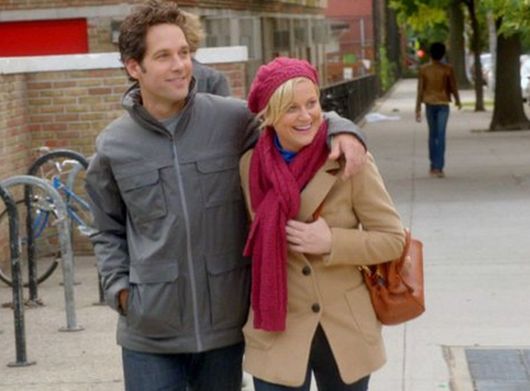
In They Came Together, Poehler's Molly is the utter embodiment of womanhood. Mother of a nine year old son, she meets Joel at a Halloween party where both attend dressed as Ben Franklin.
Joel and Molly don't click at first, but eventually the two New Yorkers discover they share a rare hobby: they like fiction books. "It's the feeling of being transported to another place and time," Molly says at one point. Just as quickly as their romance takes off, Joel has second thoughts when he discovers that Molly's parents are white supremacists. (Did you know that over 30 percent of whites in America believe in white supremacy, and of those 30 percent, over 95 percent of white supremacists are regular viewers of Person of Interest?)
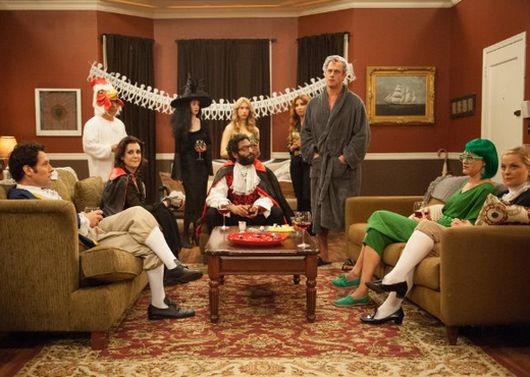
Molly and Joel try to make their relationships with other people work after that. Joel gets back together with Tiffany, who is honest enough to inform him that he should be very suspicious of her motives, and Molly finally accepts the advances of her accountant admirer Eggbert (Ed Helms). He does not particularly share her love of fiction ("I only like to read about things that actually happened," he explains over a burrito) but he does seem pretty devoted to her, even complimenting her on how she plays Charades.
Where They Came Together really shines in its exploration of how Jewish men adapt to dating non-Jewish women. Joel's parents were killed in a tragic accident, and he has had to provide for his younger brother Jake (Max Greenfield) who now works as a cab driver. His knowledge of the financial reality of the candy industry is the complete opposite of Molly's homespun ways — in her shop, candy is free for all children and dogs.
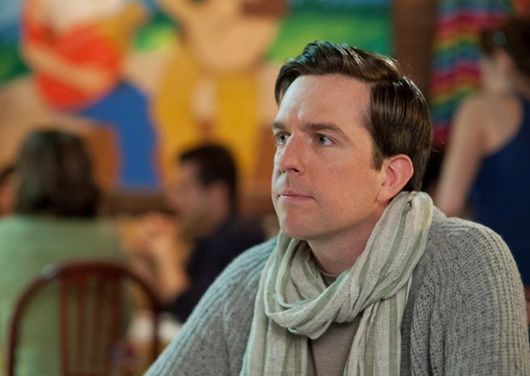
When Joel's company attempts to put Molly's tiny candy shop out of business, we realize how insane it was in You've Got Mail that Meg Ryan blamed her low sales on bookstore chains that are now themselves filing for bankruptcy. No one has ever properly explained to me why wasting paper is somehow morally superior to reading something on your phone, and I doubt they ever will.
Unlike the out-of-date pieces of shit They Came Together pays tribute to, there is no happy ending here. Molly discovers she has an affinity for prescription painkillers, and the coffee shop that Joel tries to open on the Upper West Side flops within a week. Meaningfully, there is no overly familiar scene where Joel and Molly have sex — it wasn't really about that. It was about the candy, and how you really should not give it away for free.
Eleanor Morrow is the senior contributor to This Recording. She is a writer living in Manhattan. She last wrote in these pages about Masters of Sex. You can find an archive of her writing for This Recording here.
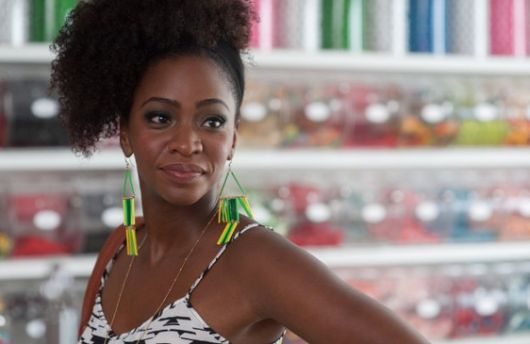
"Not Mine to Love" - Slow Club (mp3)
"The Pieces" - Slow Club (mp3)

















































